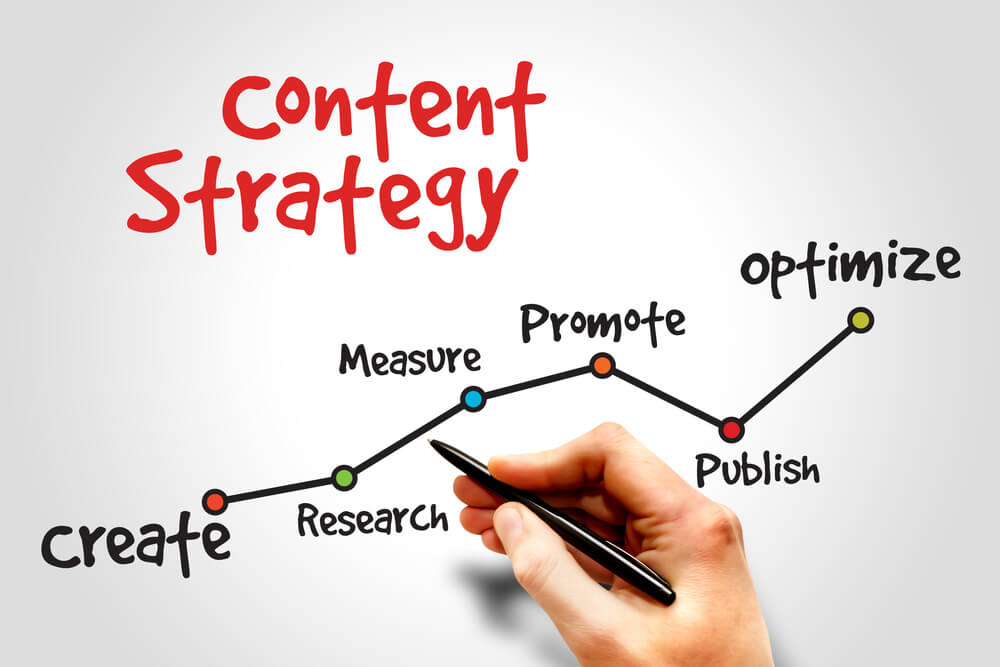To boost your site’s SEO and page rankings, content is king.

Content marketing is one of the pillars of search engine optimization, allowing you — or your internet marketing company — to bring your keywords and key phrases to the attention of Google’s algorithms.
Today, more than ever, Google loves valuable, high-quality content of all types and lengths. Recent research seems to indicate however, that long-form content can better help boost your SEO and page rankings.
If a prospect is ready to make a purchase, Google won’t have much trouble finding a business that fits their needs. In fact, the basic structure of your website, pay-per-click ads and on-page optimization are geared to make sure they find you.
But what if they aren’t far enough along the path to purchase yet?

Many prospective customers start by researching and learning about a product or service, which continues until they achieve a comfort level that lets them move forward to purchase. For example, a homeowner who needs a new roof might look to compare cost, life expectancy and insulating value.
This prospect may begin researching even earlier, when he or she first notices a leak in the roof, for example. If you offer information about roof leak detection and repair, you can earn the prospect’s trust well before he or she needs your services. When that person is ready, however, you have a new customer.
This is what Google wants — actually, demands — that you provide, if you want to prove your website worthy of a high SEO page ranking for your area and your keywords.
Even if this all makes sense, you may wonder why you can’t achieve the same objectives with shorter blog posts.
At one time, Google’s algorithms clearly favored shorter blog posts, with the sweet spot somewhere between 400 to 700 words. More recent updates to the algorithms have made longer posts appealing as well. Although SEO experts aren’t in full agreement on how long is long, most agree that the target for long-form posts ranges between 1,200 and 5,000 words.
Despite what you may believe about shrinking attention spans, your prospects and customers like longer posts.

Expanded content really lets you dig into your topic and explain it well. This helps inform and engage your audience. Longer content converts better, leading to more click-throughs and responses to calls to action. Social media shares and links also favor long content.
Short content can provide advantages with Google and the other search engines, but they’re different benefits than you’ll see with longer posts. This has everything to do with Google’s restrictions on overuse of SEO keywords.
Valuable, engaging content reads naturally, has proper spelling and grammar, and it doesn’t repeat keywords or phrases simply to get more in. In fact, Google restricts contact to a maximum of about 3 percent density for any given keyword or phrase. In a short post, you will be limited on how many times you can use these important SEO tools.
In a long post, you can use your main keywords freely, and you can incorporate many other long-tailed key phrases as well. You can also provide a more thorough exploration of your topic, citing more reliable sources and statistics. Google will recognize this and improve your status as an expert in your field.
When other sites — especially sites that are highly regarded by Google — link to your content, you’ll be rewarded with even better SEO page rankings.
Finally, long-form content has a longer shelf life. Shorter content grows stale after a few years, at least in Google’s mind.

Long blogs can provide dozens of marketing opportunities for cross-posting, video scripts and social media features. But blogs aren’t the only means to leverage content marketing and boost your SEO page rankings.
For example, e-books are popular with prospects. So are white papers, market reports, listicles, FAQs or glossaries, user guides, interviews with industry leaders or experts, features or benefits lists, newsletters, e-zines, product pages and landing pages.
For most business websites, a mix of short-, medium- and long-form content will provide the best approach for your SEO and page ranking. Likewise, use a mix of video, infographics, photos and text-based content to make sure you offer something for everyone.

When you leverage longer content to improve your page rank, make ample use of subheadings and visual aids. You may also want to include a summary of the content, which will engage readers and establish their expectations.
Like every aspect of online marketing, SEO and page-ranking efforts, the type and amount of content your website needs are unique to your business model and industry. The key to our success here at Be Locally SEO is the understanding that no one-size-fits-all approach works for improving search engine placement or increasing sales.
Every Be Locally SEO client benefits from our proprietary techniques and customer-focused service delivery. Our recommendations for your internet marketing plan are designed to maximize your budget while achieving your goals for increasing market share and growing your business. Contact us to learn more about our effective, affordable services for internet marketing, PPC advertising and SEO page ranking and placement.
